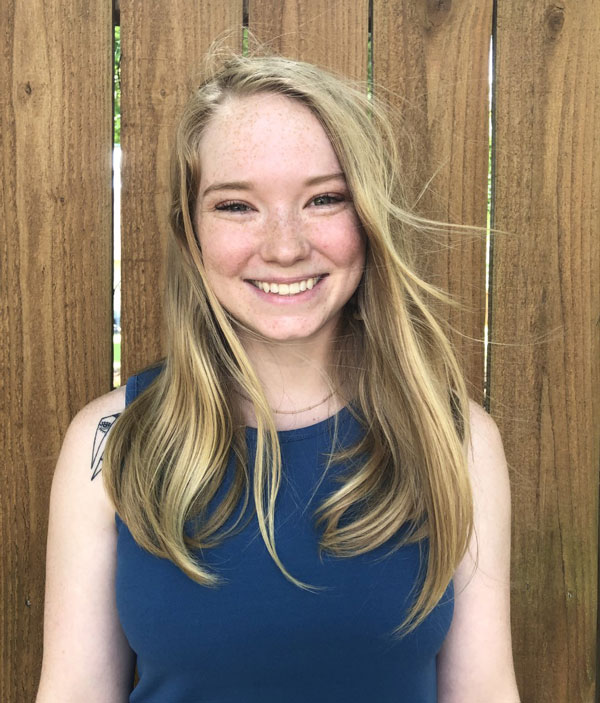By Jordan Beach
When Laurence Stacey designed his First Year Seminar course on environmental issues, it became a catalyst for Zoe Roberts to pursue her passion.
Roberts walked across the graduation stage in May 2019, completing her Interdisciplinary Studies (IDS) degree at Reinhardt, a program that allowed her to explore many different subjects.

“I’m originally from Virginia, which is one of the largest mining states in the U.S. Mr. Stacey taught me how to understand what was happening in my hometown and gave me a place to voice my concerns,” said Roberts. “Through his class, I found that my best way of voicing my concerns was through writing.”
She now will be continuing her studies at the University of Denver this fall with a major in Environmental Policy and Management and a concentration in Energy and Sustainability.
Throughout the rest of her classes—including Dr. Graham Johnson’s IDS course on Vikings and Native Americans—she continued to incorporate and further her research on the environment into all facets of her diverse studies.
“So, I essentially used the next four years to write about the environmental problems in classes that weren’t about the environment,” Roberts said of her time at Reinhardt. “I was lucky to have professors who allowed me to write about what was important to me.”
Due to the nature of her major, Roberts had the ability to research the environment in unique ways, such as how the contrasting religions of Vikings and Native Americans connected to the environment in Johnson’s course, a topic she felt she could have only had the opportunity to address in that class. Other professors, including Dr. Donna Little and Dr. Theresa Ast, supported her exploration of environmental social issues through many lenses.
“Being an IDS major allows you to explore so many different subjects. In my opinion, almost every subject in education can be connected. That’s how it is with environmentalism. Everything happens for a reason. I think that as an IDS major, I have been able to connect so many different subjects to the environment.”
Stacey enabled Roberts to open her mind and view her interests on a larger scale.
“Mr. Stacey was the one who made it clear to me that I was not the only person in the world who felt the effects of environmental degradation. I think it’s easy for 16-year-olds to forget that there are other people in the world who also have problems. Mr. Stacey helped me see the world more altruistically than I’d ever done before.”
Upon completing graduate school, Roberts hopes to work for an environmental nonprofit, expressing interest in the Sierra Club, and feels she’ll find fulfillment working hands-on in a field she finds so important.

